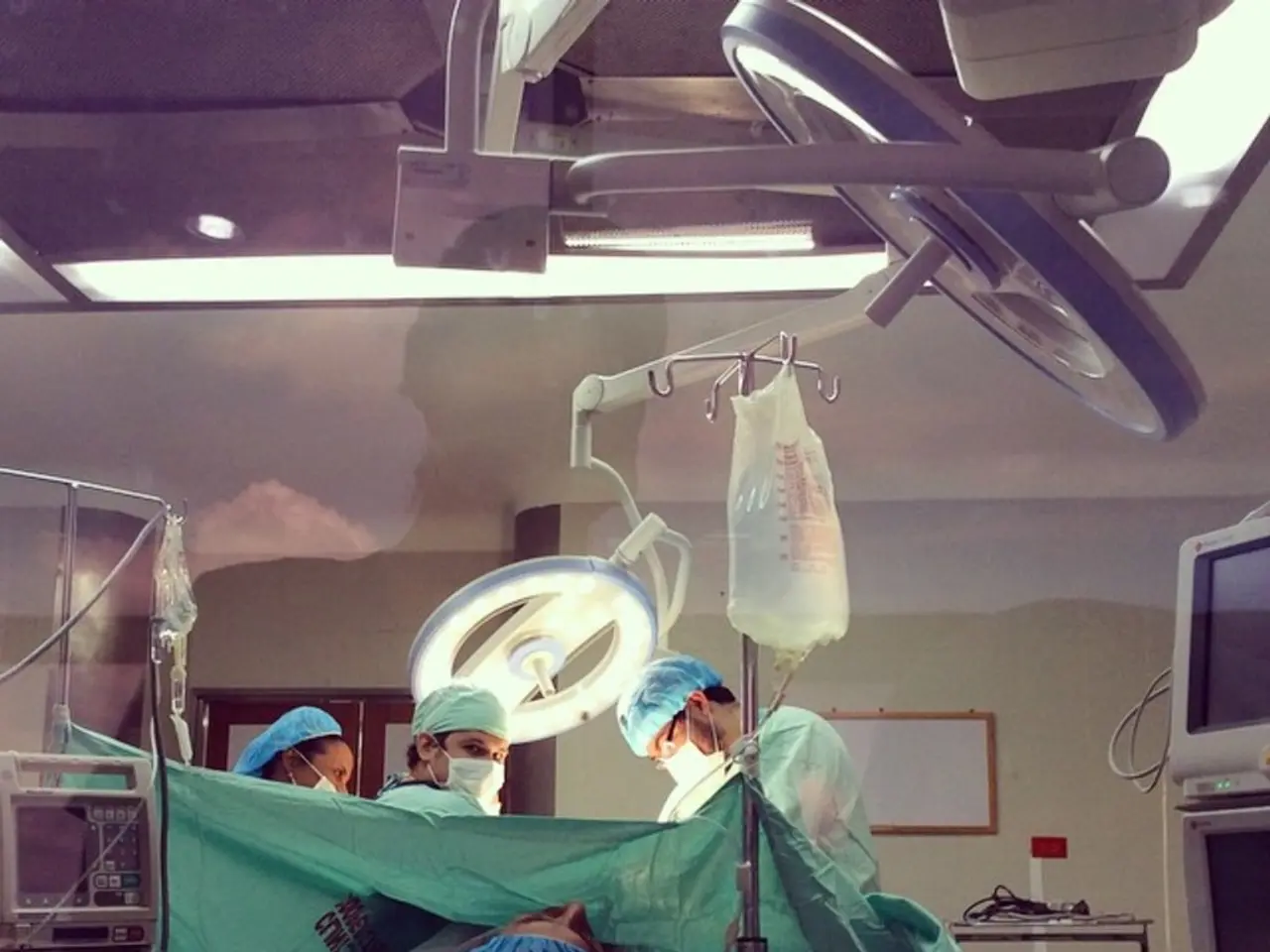Groundbreaking robotic surgical systems given the green light by UK regulatory body
The National Health Service (NHS) in the UK is witnessing a significant transformation with the incorporation of eleven advanced robotic surgery systems, approved by the National Institute for Health and Care Excellence (NICE), across multiple specialties and trusts. This shift has been accompanied by a dramatic increase in robotic-assisted surgeries, with over 69,000 procedures performed in 2023, up from 11,000 in 2016, marking a 524% growth.
NHS trusts like North Bristol NHS Trust and Southmead Hospital have expanded their robotic system capacity, performing thousands of complex surgeries for conditions such as prostate, bladder cancer, and gynecological issues. Similarly, Royal Surrey NHS Foundation Trust operates four surgical robots, with around 10,000 robot-assisted cases soon, spanning areas like bowel, liver, pancreas, and women’s health.
The potential impact of these systems in the NHS is substantial. They promise shorter patient recovery times and hospital stays, reduced blood loss and lower readmission rates, increased precision in complex surgeries, improved surgeon ergonomics, enhanced productivity, and a reduction in surgical team physical strain. Some robotics even equate to the output of multiple full-time staff, enabling staff redeployment to maximize efficiency.
Moreover, robotic surgery helps reduce waiting lists for elective surgeries by increasing throughput. For instance, the Royal Surrey Cancer and Surgical Innovation Centre aims to treat 7,000 additional patients annually when it opens in 2026.
However, challenges remain, including ensuring equitable access across the NHS and structuring robotic surgery training, particularly in specialized fields like colorectal surgery. The Association of Coloproctology of Great Britain and Ireland (ACPGBI) is developing frameworks to support training and address inequalities in access to robotic surgery.
In summary, the approved robotic surgery systems in the NHS are currently transforming surgical care, improving patient outcomes and operational efficiency. Plans for further expansion and structured training are underway to sustain these benefits throughout the health service by 2035.
This article is part of NICE's Early Value Assessment process, related to Insights, Medical Device Manufacturing Insights, and Digital Health & AI Insights. Further evidence will be collected over the next three years to demonstrate the cost-effectiveness of robot-assisted surgery. The UK Health Security Agency (UKHSA) has also launched an innovative metagenomic surveillance to enhance health security.
For comments or questions about this article, please contact Chris Whitehouse at [email protected].
[1] NHS Digital. (2023). Robotic surgery in the NHS: A transformative approach. Retrieved from https://www.nhs.uk/news/technology/robotic-surgery-in-the-nhs-a-transformative-approach/ [2] Royal Surrey NHS Foundation Trust. (2023). Robotic Surgery at Royal Surrey. Retrieved from https://www.rsft.nhs.uk/services/surgery/robotics/ [3] NICE. (2023). Robot-assisted surgery: Early value assessment. Retrieved from https://www.nice.org.uk/guidance/evacollection/12522/chapter/1-Introduction [4] ACPGBI. (2023). Robotic Surgery Training Framework. Retrieved from https://acpgbi.org/resources/robotic-surgery-training-framework/
- The strategic integration of digital health technologies and health tech solutions, such as advanced robotic surgery systems, in the National Health Service (NHS) is revolutionizing patient care across multiple medical-conditions and specialties.
- With an increasing focus on health-and-wellness and technology, these systems have shown promise in improving surgical precision, saving time, and reducing recovery periods for patients, making these technologies crucial components in the NHS's future plans.
- As the NHS continues to expand its robot-assisted surgery capabilities, collaborative efforts in training, standardization, and accessibility, like the Association of Coloproctology of Great Britain and Ireland's (ACPGBI) Robotic Surgery Training Framework, will play a vital role in ensuring successful patient outcomes and equitable access to these innovative medical solutions by 2035.




